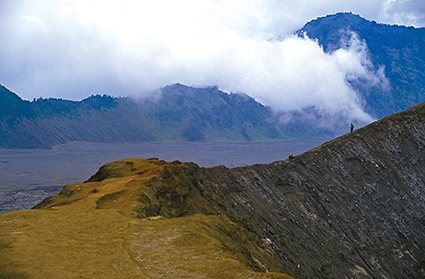‘Tis the Season: Etseri, Svaneti
BLOG
It’s been a strange year for weather up here in the high Caucasus, one must say. A cold, wet spring delayed potato planting until much later than usual. The summer was hotter than most people remember. Autumn seemed far too short, though mild. Snow has come and gone several times; we had rain yesterday evening, in early December! It changed to snow overnight, as the forecast and I both expected, and now temperatures are set to fall. A bit, to -7 C. We might get away with the mildest winter in decades here.
Weather is such a chaotic thing, both poetic-descriptively and in the mathematical sense of the word, that I’m not surprised we can’t predict it more than a few days in advance. The famous hypothetical example of a butterfly’s wingflap in America “causing” a hurricane in Shanghai, known as the Butterfly Effect, is often misunderstood. Not that that tiny puff of air will be amplified to destructive gale force half a world away; rather, its effect is to shift an existing tendency to a new location.
The point is that a planet’s or province’s weather system is vast and complicated enough that adding more decimal points of accuracy to predictions only makes them more, but never 100%, accurate, especially the farther one moves into the future. There are too many variables, and it’s not a closed system: even the planet is affected by incoming meteorite dust, sunlight, and so on. Conditions can be changed by the tiniest of factors, on the molecular scale. We can never achieve that perfect result.
Global warming seems to be a thing; news online this week was abuzz with changes in numbers for ocean rises. We wouldn’t be able to adapt fast enough as a species, and all, yes all, of our coastal cities could vanish under new sea levels in mere decades. Take out or download a world map and you’ll see how many cities that is, and then start adding up their populations.
Offset this, though, by the possible effects of a major volcanic eruption, such as the one brewing in Bali at the moment. In the early 19th century, such an event spewed enough ash into the air to affect world temperatures by several degrees colder, blocking out the sun and giving Europe a snowy summer in 1816. Mount Tambora on the Island of Sumbawa in present day Indonesia was the culprit. Nowadays, of course, enough ash in the atmosphere would not only cool the warming planet for a while; it would also ground air traffic (as Iceland did briefly some years ago) and thus hugely affect the economy of the world. Delicate thing, weather.
This point in human history is being called by many scientists the Anthropocene. Defined as the first time that we as a species have the potential to affect things on a global scale, through our industries and their effects. With 7 billion of us and more, this should not come as a surprise. It also seems to be a time of superhuman potential, arising from sheer numbers of people and their computers, together achieving seeming miracles in materials technology and so much more. Are we balanced on a knife edge? Can we clean up the mess we’re making and have made, or do we think it’s too expensive to do so?
I, for one, believe that for all our genius we have enough flaws and blind spots that we cannot “save” ourselves. As both weather and general world news ratchet up in degrees of “interesting”, time will tell.
Tony Hanmer has lived in Georgia since 1999, in Svaneti since 2007, and been a weekly writer for GT since early 2011. He runs the “Svaneti Renaissance” Facebook group, now with nearly 1800 members, at www.facebook.com/groups/SvanetiRenaissance/
He and his wife also run their own guest house in Etseri:
www.facebook.com/hanmer.house.svaneti
Tony Hanmer












